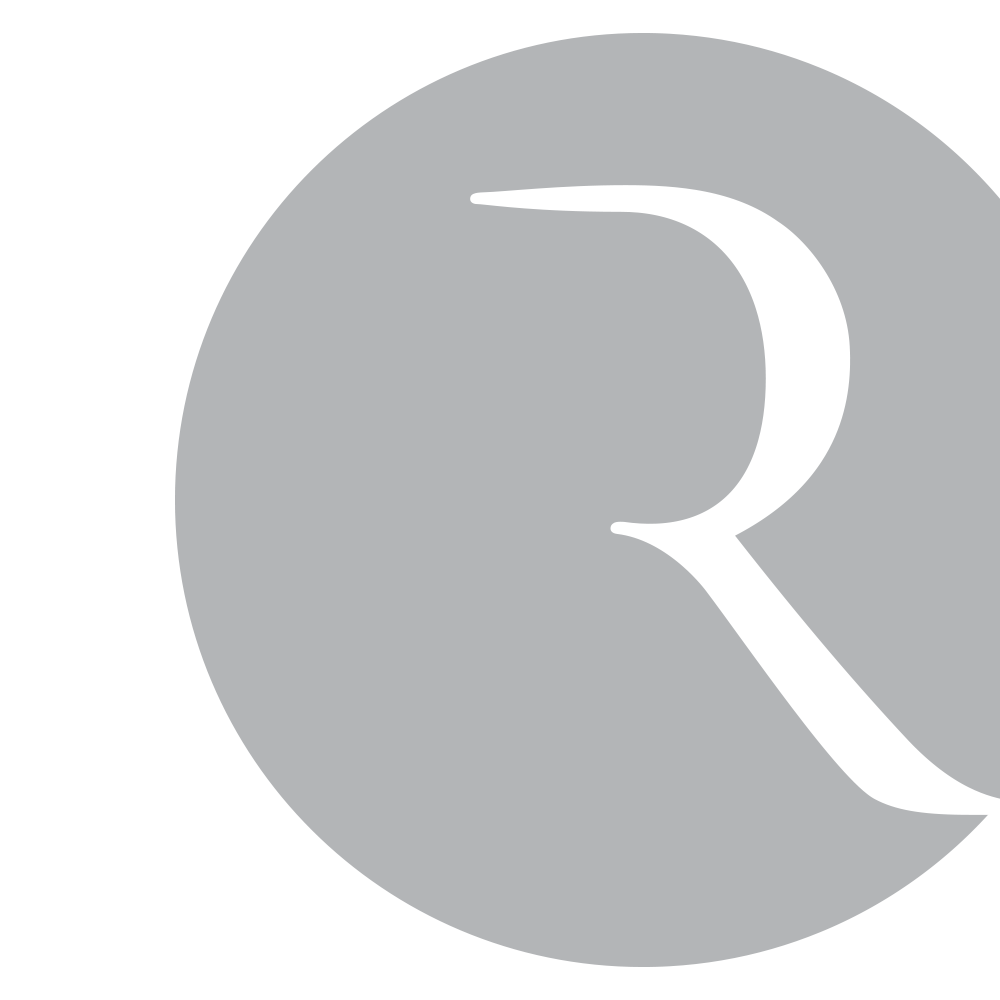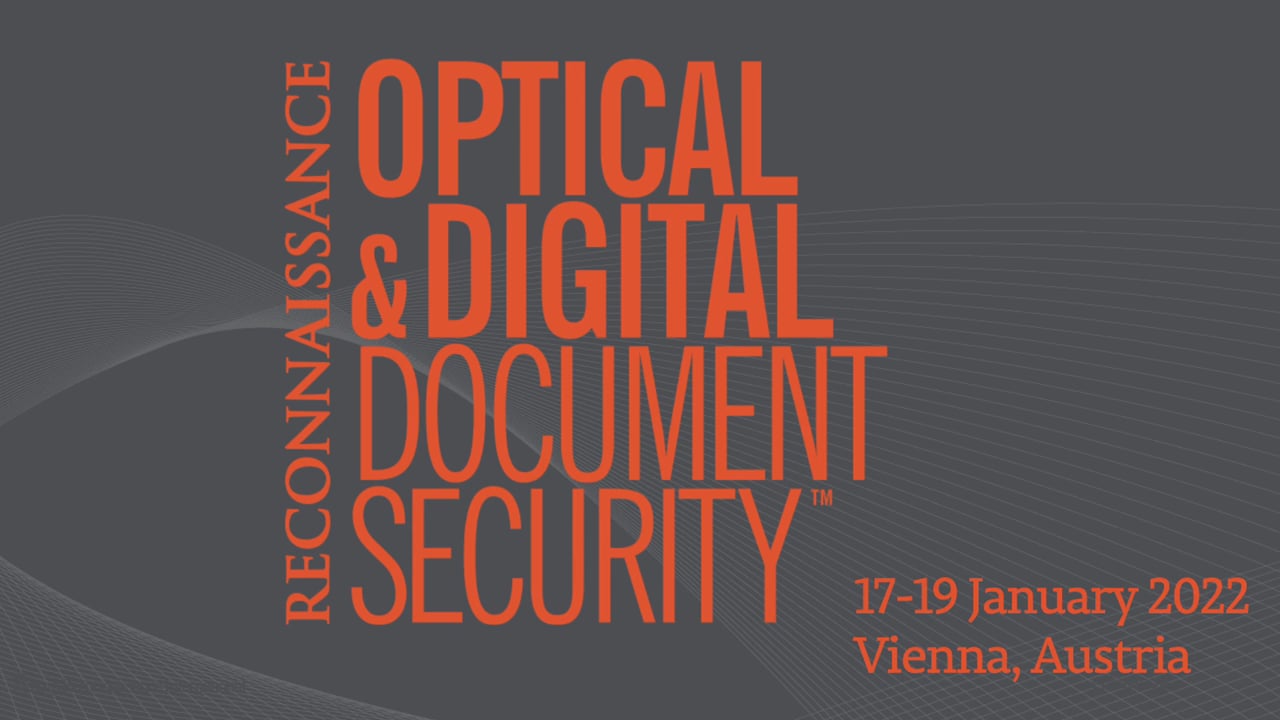2021 Review – DDS Online
Digital Document Security – A Conference for Troubling Times
The role of physical and digital secure documents is coming under increased scrutiny as the world debates how they might be used to implement proof of health status. But, as explored in the recent Digital Document Security Conference, this is only one of the many issues facing the industry as secure documents transition from physical to digital and ultimately virtual formats.
Astrid Mitchell, CEO of conference organisers Reconnaissance, welcomed representatives from more than 75 organisations across 35 countries to the second Digital Document Security (DDS) Conference held online 30 -31 March. Her welcome captured the essence of DDS, which is to provide a forum that connects the communities at the interface between the physical, digital, and increasingly virtual, document security domains.
Ian Lancaster and Francis Tuffy, both from Reconnaissance, shared the keynote address providing context to the conference. Both speakers picked up on the inevitable current focus on identity management that link a person to their health status through secure documentation. Francis highlighted the resonance of the transition in the industry from physical to digital and virtual to what we are witnessing in the current public health crisis from physical certification of vaccinations towards virtual proof of immunity status.
The transition
The first session of the conference considered the transition from physical to digital secure documents through three different lenses. In the first of these, Paul Bastian from Bundesdruckerei (Germany), used the analogy of a physical wallet containing a range of identity related cards to explain the concept of self-sovereign identity (SSI) in that it is the wallet owner (and hopefully bearer) that can choose which card to use in any situation.
The second slot was co-presented by Adriana Ezpeleta and Franziska Muschik, both from Veridos (Germany). In their presentation they considered the benefits of document authentication with visible digital seals (VDS) and a database protected by a PKI infrastructure. It also touched on a possible replacement for this approach with alternatives, including a private blockchain.
The session’s closing presentation came from John Winchcombe – Reconnaissance’s cash and payments expert. John entertained the dematerialisation of cash in considering current central banks’ activity in the areas of ‘wholesale’ and ‘retail’ Central Bank Digital Currencies (CBDCs).
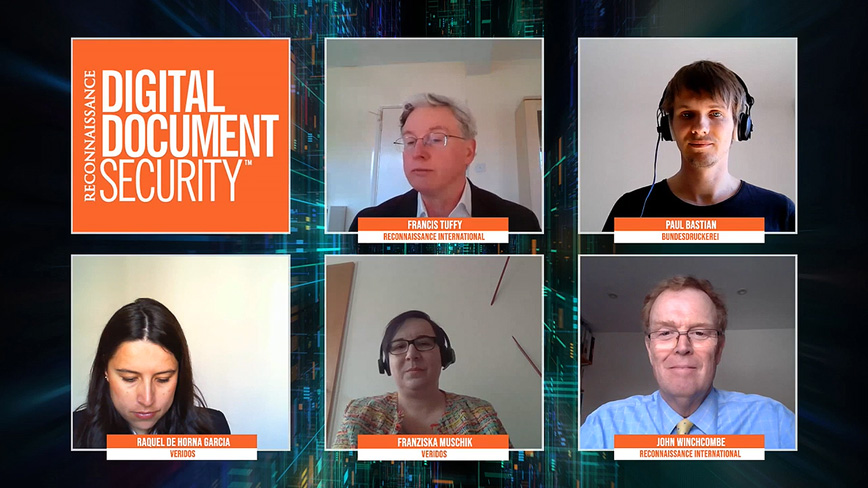
After a short break, Session 2 – Regulation, Standardisation and Cooperation, kicked off with Alan Hodgson, from his eponymously named consulting firm, who explained his role in convening and running technical committees on international standards. His message was that standards will have impact as long as they address the needs of the various stakeholders involved. In the case of identity related secure documents, the interested parties are the consumers (it’s their IDs we’re using after all), governments and standards bodies, and industry – to allow companies to trade across borders.
Paper 2 in the session saw Franz Brudl, from the Austrian state printer ÖeSD, summarising the main content of the future ISO standard 18013-5 surrounding mobile driving licences (mDL). Franz then shone a light on the potential role that mDLs might play as a door-opener for other mobile credentials. Thomas Schalldach’s (Thales, France) presentation on using digital documents with unmanned relying party systems shared how latest security mechanisms can address the growing challenges of an open and global digital document ecosystem.
The session finale was Jean-Philippe Egger’s (SICPA, Switzerland) exploration of the role for security printers in the digital age. In response to the shift to secure digital documents, he envisions a need for universal and independent verification of both paper and digital certificates. Jean-Philippe sees a role for security printers in this transformation, taking advantage of mobile technology to change the way that trusted and private information is shared and verified.
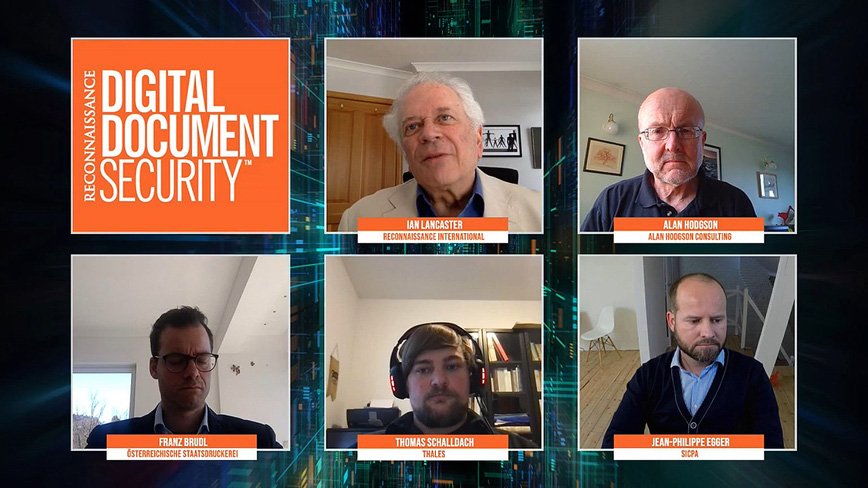
Panel discussion
The panel discussion at the end of Day 1 brought together Tony Poole (AJW/Secure Doc Alliance), Marco Aloe (SICPA), David Rutnam (IATA), Husayn Kassai (Onfido) and Francis Tuffy, under the chair of Ian Lancaster. The topic for the discussion ‘Vaccination certificates and immunity passports’ echoed the themes of Reconnaissance’s White Paper of the same title.
The panellists used their opening remarks to recount the technical readiness of world governments to move forward on certification and health status proof programmes. The image that developed was a fractured one, with countries and blocs proceeding with their own approaches with little attempt at coordination. Despite efforts to limit questions to purely technical considerations it was inevitable that several questions from the audience explored how technical solutions from the ID and secure document industry might address issues of inclusion and morality.
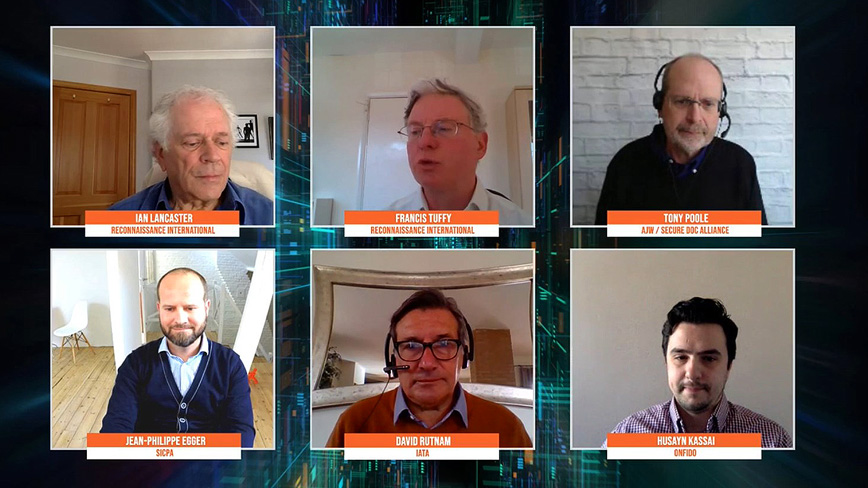
The physical-digital interface
Nuno Gonçalves from INCM –(the Portuguese Mint and Official Printing Office) got Day 2 off to a flying start, exploring new trends in the mixing of the physical and digital worlds using security and facial recognition.
Jan Thiele from Prismade Labs (Germany) continued the session theme of the physical-digital interface, presenting a new printed electronic feature working in tandem with a smartphone. The feature embeds a fully printed keyboard in the document that enables the user to self-authenticate and enter a PIN code. Jan’s demonstration of the technology displayed its ability to prevent optical copies and provide proof of presence.
Marc Schnieper, from private non-profit research and technology organisation CSEM (Switzerland), considered three approaches to making reading security labels on a smartphone more secure. First, he looked at integrating a security feature at the packaging fabrication stage; second, using a QR code constructed from a DOVID-like structure; and finally, a new way to use fluorescent inks to hide a QR code.
Anton Pfeifer from the Institute Industrial IT, Technische Hochschule Ostwestfalen-Lippe (Germany) concluded the session with his presentation describing passive coding methods to detect the authenticity of physical documents.

Dr Matthias Schwan (Bundesdruckerei, Germany), opening the session on ‘Implementation – Putting Theory into Practice’, used his presentation on mobile devices as secure and convenient carriers on eID documents to give real world examples of protecting against the threat of cloning.
Sina Grebrodt (Koenig & Bauer Banknote Solutions, Switzerland) recounted the experiences of students at the Art Centre, Pasadena (USA) from a project started in 2019 to a current description of a future banknote that encompasses a dual physical and digital hybrid and that can be activated and deactivated on demand.
It is widely accepted that Estonia is amongst the most advanced eGovernment states in Europe, so it made sense that Annika Kluge, from the Estonia Information System Authority, should share the country’s 18 years’ experience of securing electronic documents. In the current trend toward remote working, Annika warns against taking short-term measures which may have unintended long-term consequences.
The final presentation of the final session came from a source not usually associated with document security – Zhihu Li from the State Grid Corporation of China, the largest utility company in the world. Zhihu’s presentation on digital currency and blockchain gave a rare insight into that country’s research efforts in secure documentation.
Zhihu’s presentation stimulated several questions during the Q&A session at the end of Session 4, including anti-blockchain algorithms and whether national blockchains might undermine many of the strengths of blockchains, such as privacy and decentralisation of transactions.
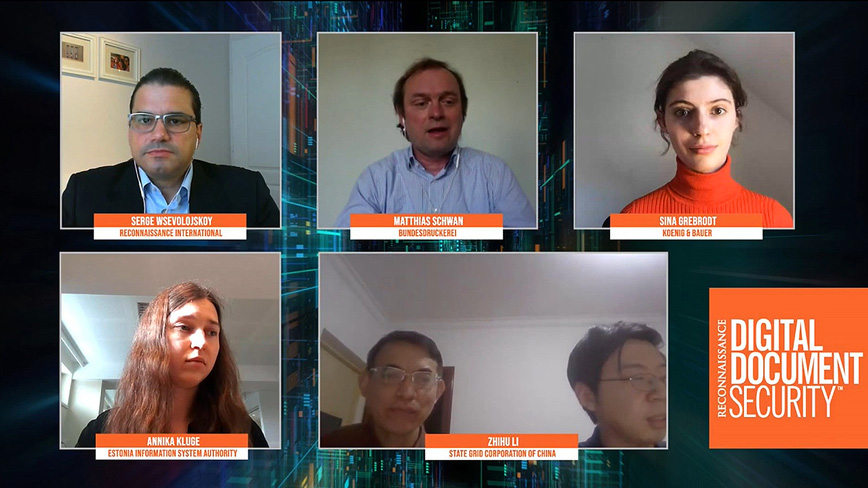
The panel discussion that signalled the end of Day 2, and the conference, brought together Mark Pic (SURYS), Annika Kluge (Estonia Information System Authority), Narumi Pereira Lima (Brazilian Federal Police) and Ian Lancaster – all under the moderation of Serge Wsevolojskoy of Reconnaissance.
Amongst the lively debate on security and protection issues as secure documents migrate from physical to digital, Marc gave a fantastic demonstration of real-time deep fake video manipulation. In front of the online conference audience, he used the face of Serge Wsevolojskoy (panel moderator) to ‘speak’ his opening remarks. It wasn’t perfect, but it was sufficiently good to pass casual inspection!
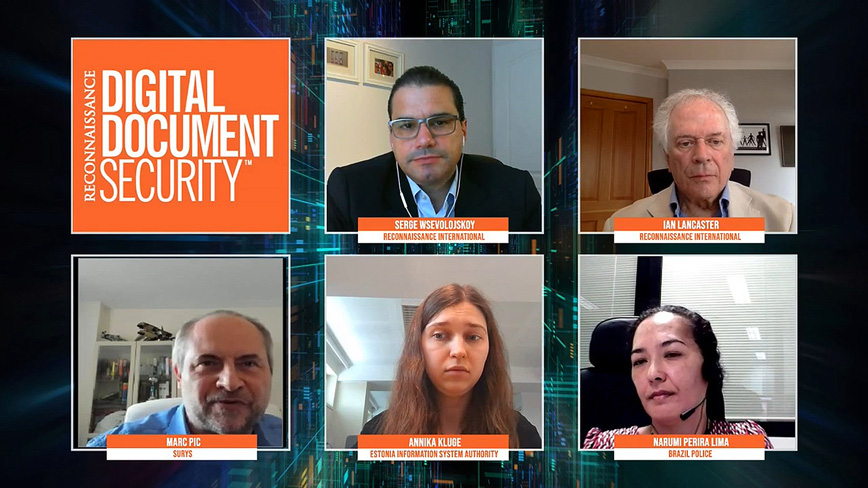
The conference concluded with the announcement from Ian Lancaster that Reconnaissance has taken the decision to merge the Optical Document Security Conference and the Digital Document Security Conference. The new event will be the Optical and Digital Document Security Conference (ODDS), and it will be described as the technical conference for physical, digital and virtual document security.
This new-look event is scheduled for 17-19 January 2022 in Vienna, Austria. See video below.
The Vaccination Certificate and Immunity Passport White Paper is now available, free of charge, via this link.
Anonymous
Banco de España
Österreichische Staatsdruckerei GmbH
Attendees
Advanced Track & Trace
France
AJW Inc
USA
Alan Hodgson Consulting
United Kingdom
Australian Department of Foreign Affairs And Trade
Australia
Australian Passport Office
Australia
Banco de España
Spain
Banco de México
Mexico
Bank Al-Maghrib
Morocco
Bank of Estonia
Estonia
Banknote Corporation Of America
USA
Border Police Department, Republic of Moldova
Moldova
Bundesdruckerei
Germany
Carabineros de Chile
Chile
Centre for Document Personalization
Poland
CreatQoo Technology Pte Ltd
Singapore
CSEM SA Basel
Switzerland
Danish National ID-Centre
Denmark
Department of Home Affairs
Australia
Deutsche Bundesbank
Germany
Document Security Alliance
USA
Estonia Information System Authority
Estonia
European Central Bank
Germany
Federal Office of Police (Fedpol)
Switzerland
Finnish Immigration Service
Finland
German Federal Criminal Police Office
Germany
GET Group
USA
Health Sciences Authority, Singapore
Singapore
HM Passport Office
United Kingdom
Imprensa Nacional-Casa da Moeda
Portugal
inIT- Institute Industrial IT
Germany
Istituto Poligrafico e Zecca dello Stato
Italy
Koenig & Bauer Banknote Solutions
Switzerland
Krypten
Russian Federation
Lahnpaper GmbH
Germany
Landqart
Switzerland
Lighthouse Communications
Switzerland
LK Forensic Competencies
Switzerland
Luminescence SunChemical Security
Belgium
Ministry of Civil Affairs
Bosnia and Herzegovina
Ministry of Interior Croatia
Croatia
Ministry of Works & Transport
Uganda
National Bank of Moldova
Moldova
National Institute of Criminalistics, Federal Police Department
United Kingdom
National Printing Bureau, Japan
Japan
Oak RIdge National Laboratory
USA
OpSec Security Group
United Kingdom
Österreichische Staatsdruckerei GmbH
Austria
OVD Kinegram AG
Switzerland
Pakistan Revenue Authority
Pakistan
Polygraph Combine “Ukraina”
Ukraine
Population and Immigration Authority
Israel
Prismade Labs
Germany
Reconnaissance International
United Kingdom
Royal Netherlands Marechausee – ECID
Netherlands
Sertracen Group
Panama
SICPA
Switzerland
State Grid Corporation of China
China
Swiss National Bank
Switzerland
Thales
France
Tokushu Tokai Paper Co.
Japan
US Department of State
USA
Veridos
Germany
Österreichische Staatsdruckerei GmbH
Tuesday 30 March 2021
11:00 – Conference Welcome
Session 1 – The Transition
11:05
Keynote: The Digital Document Landscape
Ian Lancaster
Reconnaissance (UK)
Francis Tuffy
Reconnaissance (UK)
11:25
Self-Sovereign Identity – Initial Trust for Digital Documents
Paul Bastian
Bundesdruckerei (Germany)
11:45
Keep the world moving with eGovernment Solutions
Adriana Ezpeleta
Veridos (Germany)
Franziska Muschik
Veridos (Germany)
12:20 Session Q&A
12:45 Break
Session 2 – Regulation, Standardisation and Cooperation
13:15
How ISO 18013/5 will ensure a smooth ride for everyone
Franz Brudl
Österreichische Staatsdruckerei (Austria)
13:30
Usage of digital documents with unmanned relying party systems
Thomas Schalldach
Thales (France)
13:45
Independent and Lifelong Verification of Paper and Digital Value Documents : A role for security printers in the digital age
Jean-Philippe Egger
SICPA (Switzerland)
14:00 Session Q&A
14:25 Break
14:40 Panel Discussion: Vaccination certificates and immunity passports: ensuring their security
What is the path that will transform the millions of test and immunity records that are being issued at a national level into a globally recognised immunity passport? How will we be sure that they are accurate and secure?
An international group of experts will offer practical insights into the opportunities and pitfalls that lie ahead during the roll out of health status documentation.
Ian Lancaster – Reconnaissance International – Chair
Tony Poole – AJW / Secure Doc Alliance
Marco Aloe – SICPA
Francis Tuffy – Reconnaissance International
David Rutnam – IATA
Husayn Kassai – Onfido
15:30 End of Day 1
Wednesday 31 March 2021
11:00 – Conference Welcome Day 2
Session 3 – The Physical-Digital Interface
11:05
How to link digital and physical worlds using faces
Nuno Gonçalves
INCM - Portuguese Mint and Official Printing Office (Portugal)
11:20
Printed Smart Key – a new multi-factor approach for self-authentication on smartphones
Jan Thiele
Prismade Labs GmbH (Germany)
11:50
Digital Print Tag – Authentication Method based on Spectral Representations of Commercially Available Printing Techniques
Anton Pfeifer
inIT - Institute Industrial IT, Technische Hochschule Ostwestfalen-Lippe (Germany)
12:05 Session Q&A
12:30 Break
Session 4 – Implementation – putting Theory into Practice
12:45
Mobile devices as secure and convenient carriers for eID documents
Dr. Matthias Schwan
Bundesdruckerei (Germany)
13:05
User-based Deactivation and Activation of Banknotes
Sina Grebrodt
Koenig & Bauer Banknote Solutions (Switzerland)
13:20
Estonian e-document system through crises
Annika Kluge
Estonia Information System Authority (Estonia)
14:00 Session Q&A
14:25 Break
14:40 Panel Discussion: Security & Protection: from physical to digital
The secured document sector – covering everything from banknotes to passports – has gained 1000 years’ experience in protecting, authenticating and examining these documents, leading to very low levels of fraud. The digital sector, conversely, is subject to hacking attacks and other security breaches. How can the latter adapt and apply the experience of the former?
Serge Wsevolojskoy – Reconnaissance International – Chair
Michael Edwards – Veridos
Mark Pic – SURYS
Annika Kluge – Estonia Information System Authority
Ian Lancaster – Recconnaissance International
Narumi Pereira Lima – Brazilian Federal Police
15:30 Conference Closing
Thank You to Our Sponsors and Media Partners
- SICPA
- Reconnaissance
- Authentication News
- ID & Secure Document News
